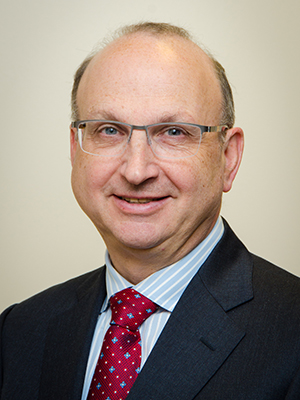Message from Dr. Norman Rosenblum on World Diabetes Day

Today on World Diabetes Day, we can reflect on Canadian innovations in diabetes prevention, management, treatment, and delivery of care. This is timely given that 2023 marks the 100th anniversary of F.G. Banting and J.J.R. Macleod receiving the Nobel Prize in Physiology or Medicine for the discovery of insulin. This discovery was a landmark achievement in Canadian medical research, transforming the field of endocrinology and the health outcomes of those affected by diabetes. The translation of this discovery into widespread clinical use occurred within a three-year period, a marvel of its time that would be difficult to imagine today.
In Canada, more than 4 million people, or 10% of the population, live with diabetes.Footnote 1 The incidence of diabetes across the country is expected to continue increasing, worsening the burden on individuals, families, communities, and health care systems. Most concerning is the rapidly increasing prevalence of type 2 diabetes (T2D) among youth 19 years or younger, particularly in racial and ethnic minority groups.Footnote 2 A recent studyFootnote 3 highlighted the linear association between a younger age of diagnosis and a higher risk of death compared to participants without diabetes. The researchers concluded that every decade of earlier diagnosis of T2D is associated with about three to four years of lower life expectancy. This underscores the need for more effective prevention approaches at a younger age.
Nowadays, it is estimated that it takes an average of 17 years to translate evidence to clinical practice.Footnote 4 Nevertheless, the last century has seen innovations to diabetes care and treatment that have transformed the lives of people with a diabetes diagnosis from dire to manageable. Canadian researchers have played a key role in this evolution in diabetes care, notably in the discovery and clinical translation of incretin biologyFootnote 5 – the study of hormones that stimulate a decrease in blood glucose levels – and in many other important areas. For example, continuous glucose monitors have made it easy to monitor blood glucose trends and can be linked to cell phone applications for quick access. On the treatment side, new medications have been developed that can prevent glucose absorption in the kidneys (sodium-glucose cotransporter-2, SGLT2, inhibitors), decrease appetite (glucagon-like peptide 1, GLP-1, receptor agonist), or increase sensitivity to insulin (thiazolidinediones). New GLP-1 receptor agonists that mimic the hormone incretin to increase insulin release after eating are the most recent mainstream medications for T2D and have become popular because they are associated with weight loss. Even insulin has had its share of innovations, such as insulin pumps for easier administration or smart insulin pens that track time and dosage. Finally, support for people with diabetes is more robust now with Certified Diabetes Educators and endocrinologists working directly with patients to optimize their health.
The CIHR 100 Years of Insulin: Accelerating Canadian Discoveries to Defeat Diabetes initiative aims to build on this legacy of Canadian diabetes research. The aim of this initiative is to elucidate previously undefined mechanisms, develop translational solutions, and harness Indigenous-led diabetes approaches that integrate resilience and wellness for First Nations, Inuit and Métis Peoples. This initiative is co-led by INMD, and the Institutes of Infection and Immunity, Genetics and Indigenous Peoples ' Health, in collaboration with a number of other CIHR institutes and external partners including Diabetes Canada, JDRF Canada, the Kidney Foundation of Canada and Fonds de recherche du Québec – Santé, as well as international partners, the UK Medical Research Council, Diabetes Fonds, Health Holland, and ZonMw (The Netherlands Organisation for Health Research and Development).
To date, 37 new research teams and operating grants have been funded through this initiative for a total CIHR and partner investment of $84.06 million. This year, the recipients of the Team Grant: CIHR-JDRF Type 1 Diabetes and Precision Medicine, Operating Grant: Diabetes, Psychosocial Health, Prevention and Self-Management, Team Grant: CIHR-JDRF Type 1 Diabetes Screening Research Consortium, and Team Grant: Diabetes Prevention and Treatment in Indigenous Communities: Resilience and Wellness were announced. I encourage you to read about these new research teams and grants.
As we look to the future, we must continue to improve prevention approaches and treatments and work to shorten the gap between research discoveries and implementation so that these discoveries can more quickly change the lives of people living with diabetes.
Dr. Norman Rosenblum, MD, FRCPC, FCAHS
Scientific Director
CIHR Institute of Nutrition, Metabolism and Diabetes
- Date modified: